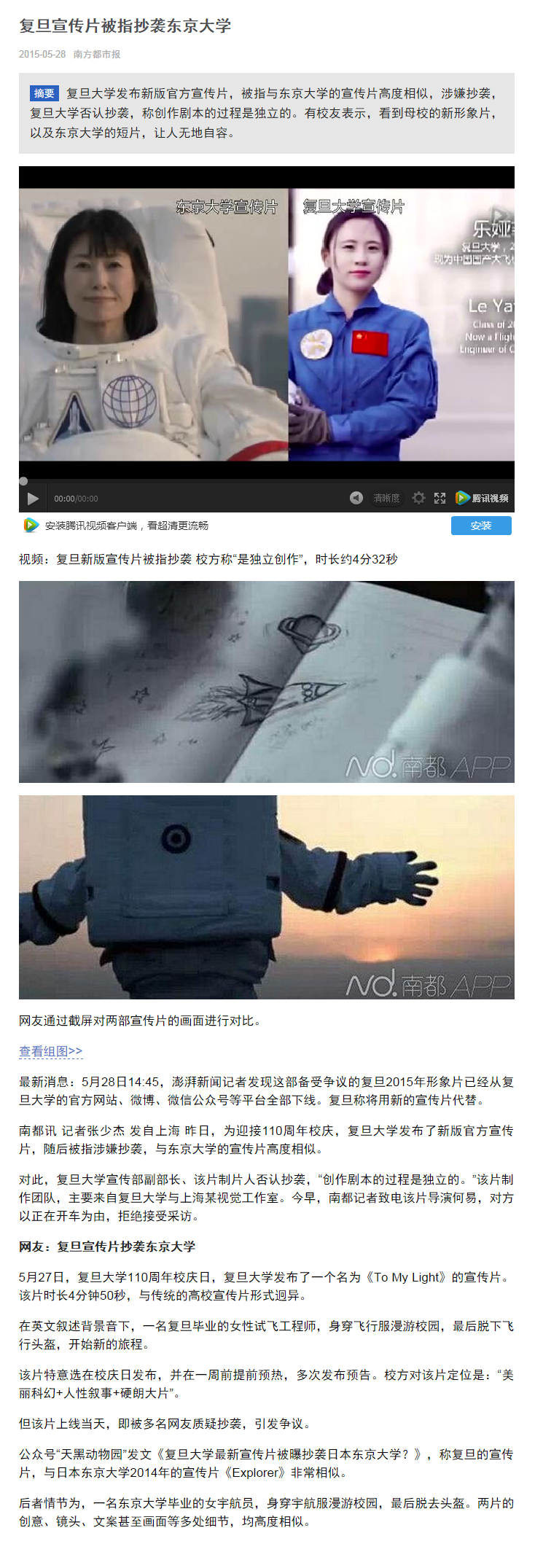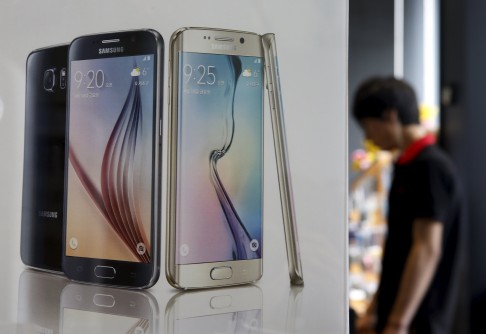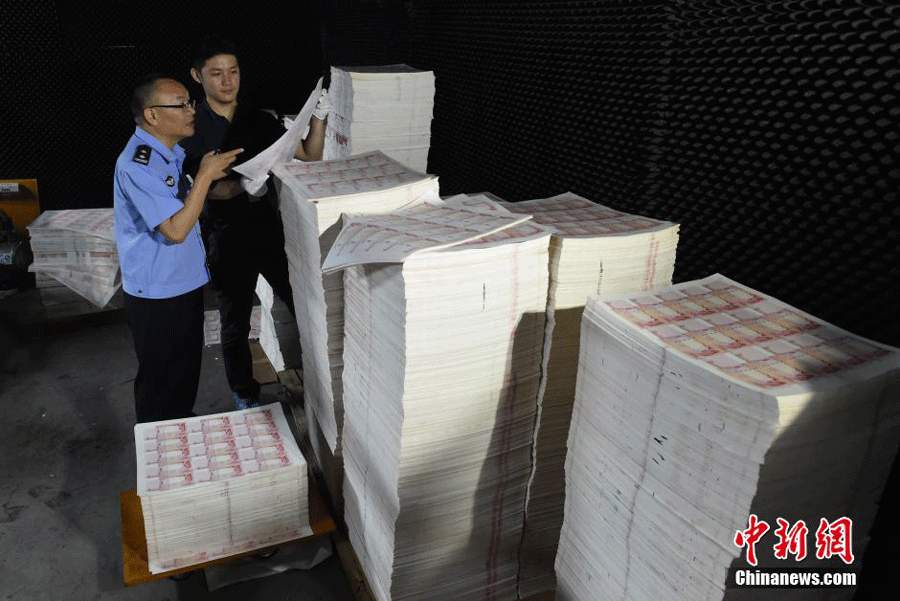Gucci sues Alibaba over 'counterfeit goods'
18 May 2015
From the section Technology
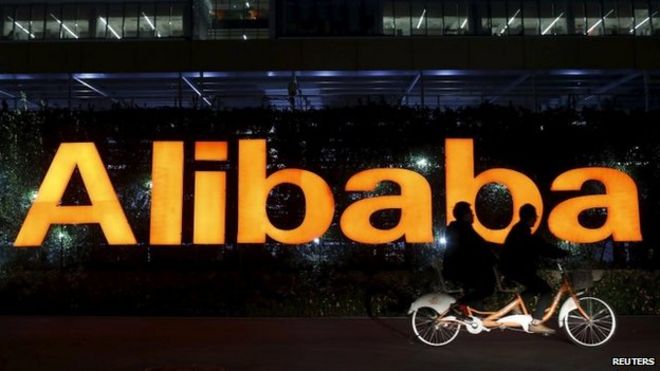
Alibaba raised $25bn when it floated its stock in New York last year
China's leading online marketplace Alibaba, is being sued by the owner of Gucci, Yves Saint Laurent, Puma and other fashion brands.
Paris-based Kering has accused the firm of making it possible for US shoppers to order counterfeit goods in bulk from Alibaba's various websites.
It follows a failed attempt to resolve the matter outside the courts.
Alibaba said it was already taking action against fake goods and that it planned to fight the case.
"We continue to work in partnership with numerous brands to help them protect their intellectual property, and we have a strong track record of doing so,'' it said in a statement.
"Unfortunately, Kering Group has chosen the path of wasteful litigation instead of the path of constructive co-operation.''
But the French firm has defended its action.
"Kering and its brands dedicate a great amount of creative energy, craftsmen's know-how and monetary investments to develop products that speak to consumers and fulfil their needs," a spokeswoman told the BBC.
"This lawsuit is part of Kering's ongoing global effort to maintain its customers' trust in its genuine products and to continue to develop the creative works and talents in its brands."
This is not the first time Alibaba has been criticised over illegal sales made using its platforms.
Its Taobao shopping service had appeared on the US Trade Representative's list of "notorious markets" until 2012, at which point the US authorities recognised it was making efforts to combat the problem.
However, earlier this year, one of China's own regulators accused the company of failing to give the issue "sufficient attention", adding that Alibaba had let the "abscess fester until it became a danger".
The report was later pulled from China's State Administration for Industry and Commerce (SAIC)'s website.
Fake bags
Kering originally took legal action against Alibaba last July, but dropped the case after the two sides agreed to discuss possible anti-counterfeit measures.

Kering's complaint gives a Gucci handbag and watch as examples of counterfeit goods sold on Alibaba
Following the breakdown of talks, the French firm has filed a fresh, lengthy complaint with a court in New York.
Within it, Kering gives the example of a merchant that has used Taobao to "openly sell" wholesale quantities of "obviously fake Gucci products".
The merchant is said to have advertised a branded handbag for $2-$5 (£1.30-£3.20) per unit - with the price determined by the size of the order, which had to be a minimum of 2,000 bags.
Kering notes that the bags are normally sold for $795 each.
It also highlights that watches bearing Gucci's trademarked logo had been displayed when users searched for "replica wristwatches" on the site.
"[The merchant] sells its counterfeit watch for $10-$80 per piece," the complaint states.
"This seller requires a minimum purchase of 300 pieces per order and can supply up to 200,000 pieces per month. The authentic Gucci watch retails for $960."
Kering alleges the two cases are part of a much bigger problem.
"These specifically identifiable counterfeit products could not be sold without their assistance, but instead of shutting down the counterfeiters, the Alibaba defendants seek to profit from the counterfeiters' blatant violations," it states.
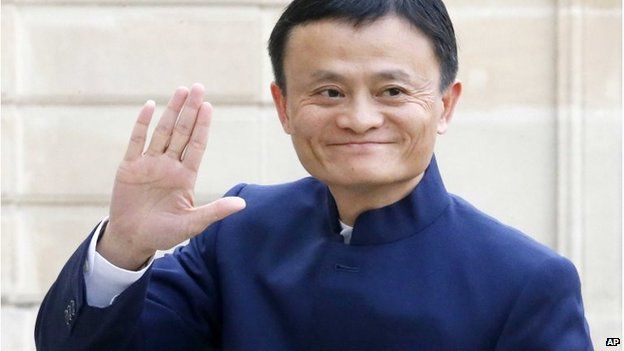
Alibaba has made its founder, Jack Ma, one of China's richest men
"The Alibaba defendants knowingly assist these counterfeiters in virtually all aspects of their illegal operations."
Counterfeit crackdown
But during a recent conference call to bank analysts, Alibaba insisted it was enforcing a "zero tolerance policy" towards fakes.
"We conduct periodic checks by using third parties to identify suspected counterfeit products on our marketplaces," said Joe Tsai, the firm's vice-chairman.
"[And] when we receive complaints or allegations regarding infringement for counterfeit groups, we follow well-developed procedures to take strict action.
"If allegations are posting or selling counterfeit products are substantiated, we penalise the parties involved through a number of means, including enforcing the seller to reimburse the buyer, assessing penalties against the seller by limiting their ability to add listings, adopting a name-and-shame policy and closing down store fronts and permanently banning the seller from establishing another store front."

Alibaba is inviting manufacturers to adopt a new anti-counterfeit technology
More recently, the firm has announced a tie-up with an Israeli start-up to offer visual markers - similar to but less obtrusive than QR codes - that can be scanned with its Taobao app to prove that goods are genuine.
Manufacturers are being invited to add the "dotless visual codes" to their labels to help prove they are authentic.

